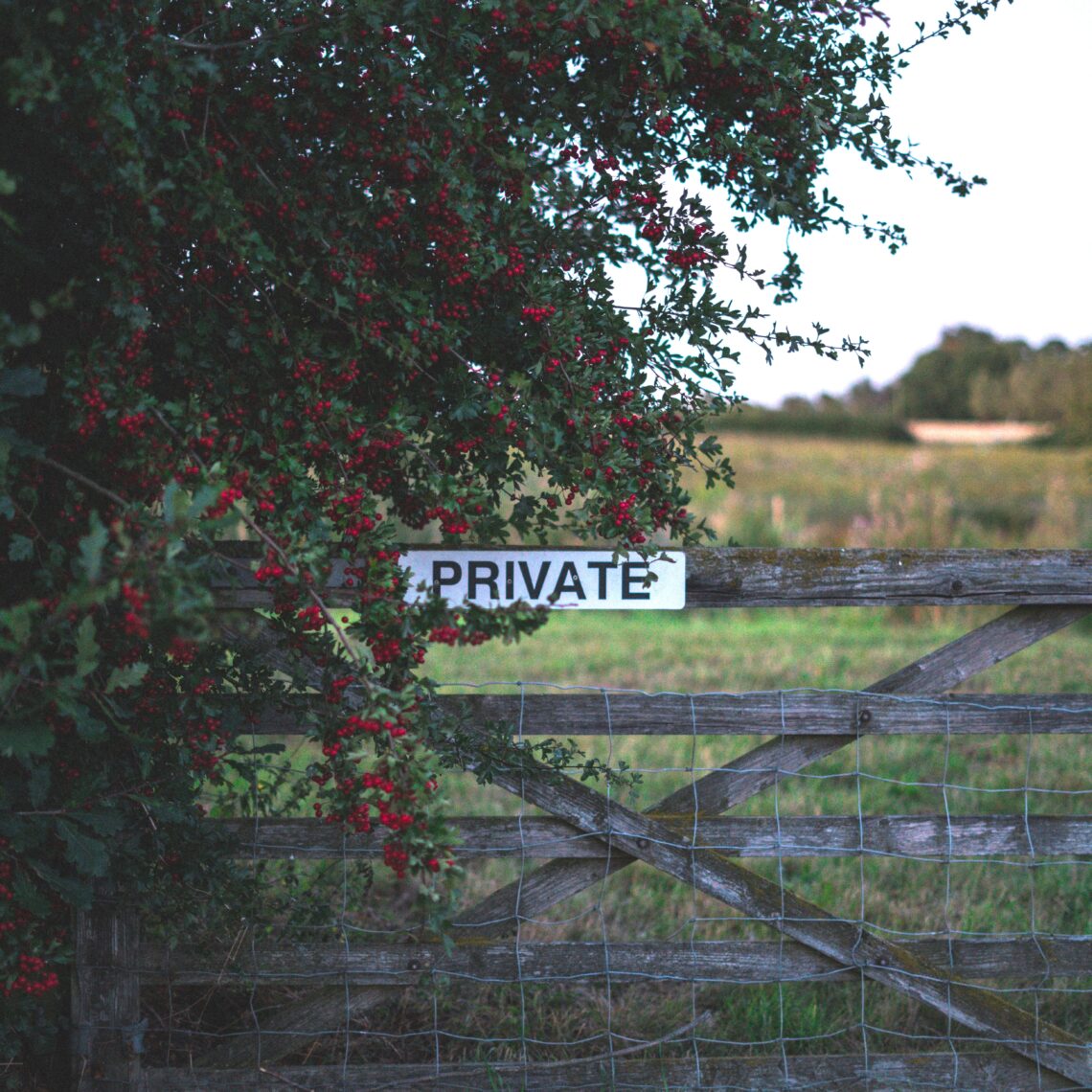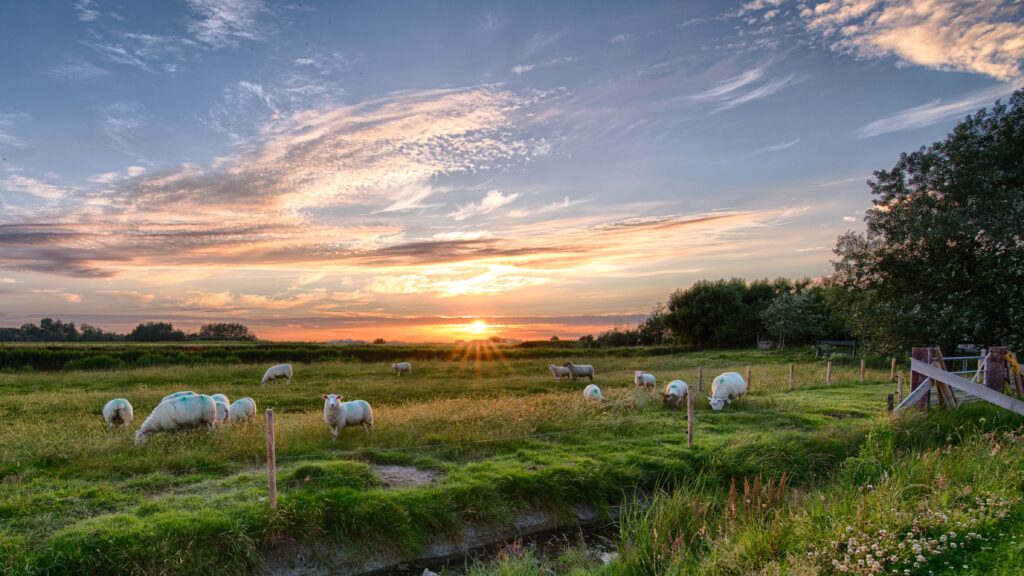
It’s right to roam
England’s countryside should be open for everyone, says Ben Cribbin.
After centuries of keeping off the grass, the English want their countryside back.
Currently, the English have a right to roam over a paltry eight percent of the country, and a miniscule three percent of its rivers and streams. Most of this eight percent is categorised as ‘open access land’, and generally includes heaths, mountains, and moors, some way from the major population centres. As obesity, respiratory disease and poor mental health increase, England desperately needs a sensible ‘right to roam’ law, granting access to the countryside and the numerous health benefits that nature bestows.
According to a recent Yougov Poll, two thirds of participants would support a Scottish-style right to roam law, and the Labour Party has pledged to introduce one, should it win the next election. However, there’s a deeper reason to allow us the right to roam that goes beyond the benefits of time spent in nature: for hundreds of years, we had that right.
Throughout the Middle Ages, common people enjoyed a complex and localised set of land rights, including the right to graze livestock, gather firewood, and wander freely. This began to change in the 16th century when, in the name of ‘productivity’ or ‘improved farming practices, landowners began to ‘enclose’ the common land with hedges and fences, thus depriving common people of these rights.
Over a fifth of the total area of England, some 6.8 million acres, were taken away from common use between the 16th and 20th centuries.
Periodically, these enclosures were legitimised by acts of parliament, a parliament filled with the same landowner class who benefited from the enclosures. Families who had previously lived a semi-independent existence found themselves hirelings dependent on outside employment. Gradually, they drifted towards the cities, and by the 20th century, the severance between the people and the land was more or less complete.
Today, less than one percent of the population owns fifty percent of England.
This includes Richard Scott, Duke of Buccleuch and Queensbury with 280,000 acres; CEO of retail chain Bestseller Anders Hoch Povlsen with 218,364 acres; and of course the Royal Family, who own 678,428 acres. And this is only the land that has been publicly declared: around fifteen percent of England is unregistered, meaning that the land registry office would not be able to tell you who owns it. While a tiny minority enjoy exclusive access to so much of the country, the remaining 60 million people are confined to urban land, public footpaths, and the eight percent of England that is open land.
It’s true, however, that we have better access to the countryside than many other countries. Britain has 140,000 kilometres of permissive footpaths criss-crossing the country like a rabbits’ warren, the equivalent of walking around the Earth over four times. Some European countries, such as Spain and France, have far fewer, and many places in the world are not blessed with safe, temperate countryside that is suitable for pleasure-walking.

Then there’s the King Charles Coastal path. Once it is finished, the entirety of the British coastland, with its marine wildlife, flowers and insects you can’t find inland, will be open for the public to enjoy. When we ponder our Island’s still-spectacular landscapes, and richly diverse (though fast-fading) flora and fauna, our question shouldn’t be, ‘why would we want more?’ It should be, ‘why would we want less?’
The most common objection to expanding the right to roam is that the public don’t know how to take care of the countryside. Walk along any country path and you might find a can of cider tossed into the nettles, a bag of dog mess hanging from a branch. Add in the damage to crops, destruction of habitats, and the danger of dogs disturbing livestock, and we’re left with a series of obstacles if we want to make the right to roam a success.
But it’s worth pointing out that it’s not the public causing the most damage to the countryside. When you factor in the agricultural use of weedkillers destroying biodiversity, or the sewage, fertilisers and chemicals pouring into the rivers. Yet we should acknowledge the concern. Alongside expanding the right to roam, we need to create a culture of responsibility for our countryside.
This could be fostered in childhood and continue throughout all stages of life.
Interacting with nature should be a greater part of the national curriculum, so that every child becomes versed in habitats and ecosystems, and the threats caused by pollution.
There may also be a case for expanding something like the Duke of Edinburgh Award, with a focus on learning to roam responsibly, and learning to better understand the threats nature faces from pollution and human interference.
The Right to Roam campaign points out that until recently the government spent just £2000 yearly on promoting the countryside code (compared to the £46 million that was spent on 2019’s ‘Get Ready for Brexit’ campaign.) Why not give the countryside code a proper marketing budget? And while we’re at it, why not launch a campaign to clean up Britain’s cities? Littering should become taboo in both town and country. For serious antisocial behaviour, such as allowing dogs to disturb livestock, there is a case for imposing fines, as have recently been introduced in Scotland.
However, is it perhaps because the English have been disinherited from their land that they lack the knowledge for how to care for it? We care about places we feel ownership of, not land we feel belongs to someone else. As scientist Robert Michael Pyle wrote: “People who care conserve; people who don’t know don’t care.” If the English became a roaming people, who were taught from a young age how to tend the land, perhaps responsibility for it would become second nature.
A right to roam law could help Englanders reclaim not only our access to these lands, but the pride that comes with owning and tending to its beauty. We could all use a bit of that right now.
Like what you’ve read? Consider supporting the work of Adamah by making a donation and help us keep exploring life’s big (and not so big) issues!
Ben Cribbin
Ben Cribbin is a Young Voices contributor and a freelance writer and editor currently living in the Southeast of England. He writes about England’s green spaces, new forms of community, and England’s ancient parish churches. His work has been featured in Plough Magazine and Ecohustler.com.

